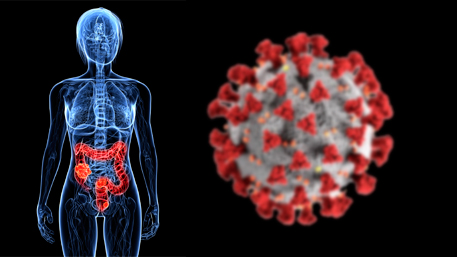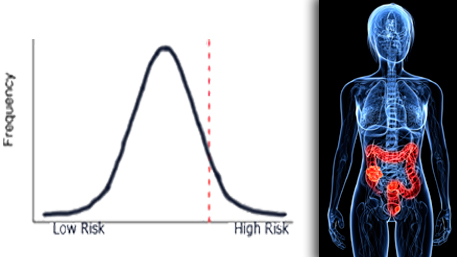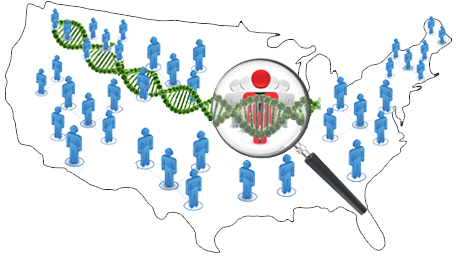Category: cancer
Persistent Underutilization of BRCA Testing for Breast and Ovarian Cancer in the United States: Implications for Health Disparities

Two recent studies document ongoing underutilization and disparities in genetic testing for patients with breast and ovarian cancer. BRCA1 and BRCA2 (BRCA) genetic testing is supported by clinical guidelines to inform hereditary cancer risk for people with certain personal or family health histories of breast, ovarian, pancreatic, or prostate cancer, and to guide treatment decisions Read More >
Posted on by 1 CommentA Piece of a Puzzle – The All of Us Research Program and Cancer

A recent article discusses the promise of precision medicine research for cancer prevention and control in the National Institutes of Health (NIH)’s All of Us research program. In 2015, then-President Barack Obama announced the precision medicine initiative to “bring us closer to curing diseases, such as cancer and diabetes — and to give all of Read More >
Posted on byStool-based Colorectal Cancer Screening in the COVID-19 Era

The COVID-19 pandemic continues to exact a devastating public health toll and in many indirect ways. While people work from home and avoid social contact, many may also be skipping important preventive care. Findings released in May of 2020 indicated a drop of between 86% and 94% in preventive cancer screenings in 2020 compared with Read More >
Posted on byShould polygenic risk scores be used in risk-stratified colorectal cancer screening?

Polygenic risk scores (PRS) summarize information about a person’s disease risk based on numerous DNA variants in their genome. Each variant confers very little increase in disease risk. But composite (or polygenic) risk scores made up of a number of such variants have been shown to stratify people to normal distributions of disease risks for Read More >
Posted on byA 2020 Reality Check on the Public Health Impact of Cancer Genomics and Precision Medicine

“Precision oncology has had some major successes… And yet, the overall effect of precision medicine on care for patients with cancer has been modest.” (David Cutler, JAMA Health Forum, 2020) The Promise of Genomics and Precision Medicine in Reducing the Burden of Cancer In 2015, the United States launched the Precision Medicine Initiative (PMI) “to Read More >
Posted on byCan an Aspirin a Day Prevent Colorectal Cancer in People with Lynch Syndrome?

Encouraging news for group at much greater risk of CRC Lynch syndrome (LS) is the most common cause of hereditary colorectal (colon) cancer (CRC). People with LS have a 50-70% risk of developing CRC in their lifetimes – far higher than the 4% risk within the general population where CRC is a leading cause of Read More >
Posted on byWhen Should You Be Screened for Colorectal Cancer?

Starting at the right time saves lives. People with a family history of CRC may need to start much earlier. Doctors and public health professionals strive to live by the creed “First, do no harm” but often wrestle with difficult choices, including when and how often screening tests should be conducted. Effective prevention of colorectal Read More >
Posted on byTrends and Factors Affecting Utilization of BRCA Testing in the United States: The Need for Improved Surveillance

This blog post is a summary of two recent CDC papers on the trends in utilization of BRCA testing in the United States, and metropolitan-nonmetropolitan areas differences in testing. Women with pathogenic BRCA mutations have an estimated 45–65% risk of breast cancer and a 17–39% risk of ovarian cancer by age 70, as compared with Read More >
Posted on byIntegrating genomics into population-based cancer surveillance in the era of precision medicine

Population-based cancer surveillance provides a quantitative measurement of cancer occurrence in the United States and globally. Core activities of surveillance include measuring cancer incidence and characterizing each cancer with regard to histopathology, stage, and treatment in the context of survival. Cancer surveillance has been crucial in informing policy and practice, as well as clinical and Read More >
Posted on byTracking Translation of Human Genome Discoveries into Prevention and Control of Common Chronic Diseases: The Action is in Cancer!

Genomics seems to be everywhere these days. From the Human Genome Project to the Precision Medicine Initiative and from the Cancer Moonshot to breakthroughs in genome editing, we are overwhelmed with information about genomics. The hope and hype of discoveries are intermixed daily in published scientific articles and media coverage of how they might improve Read More >
Posted on by